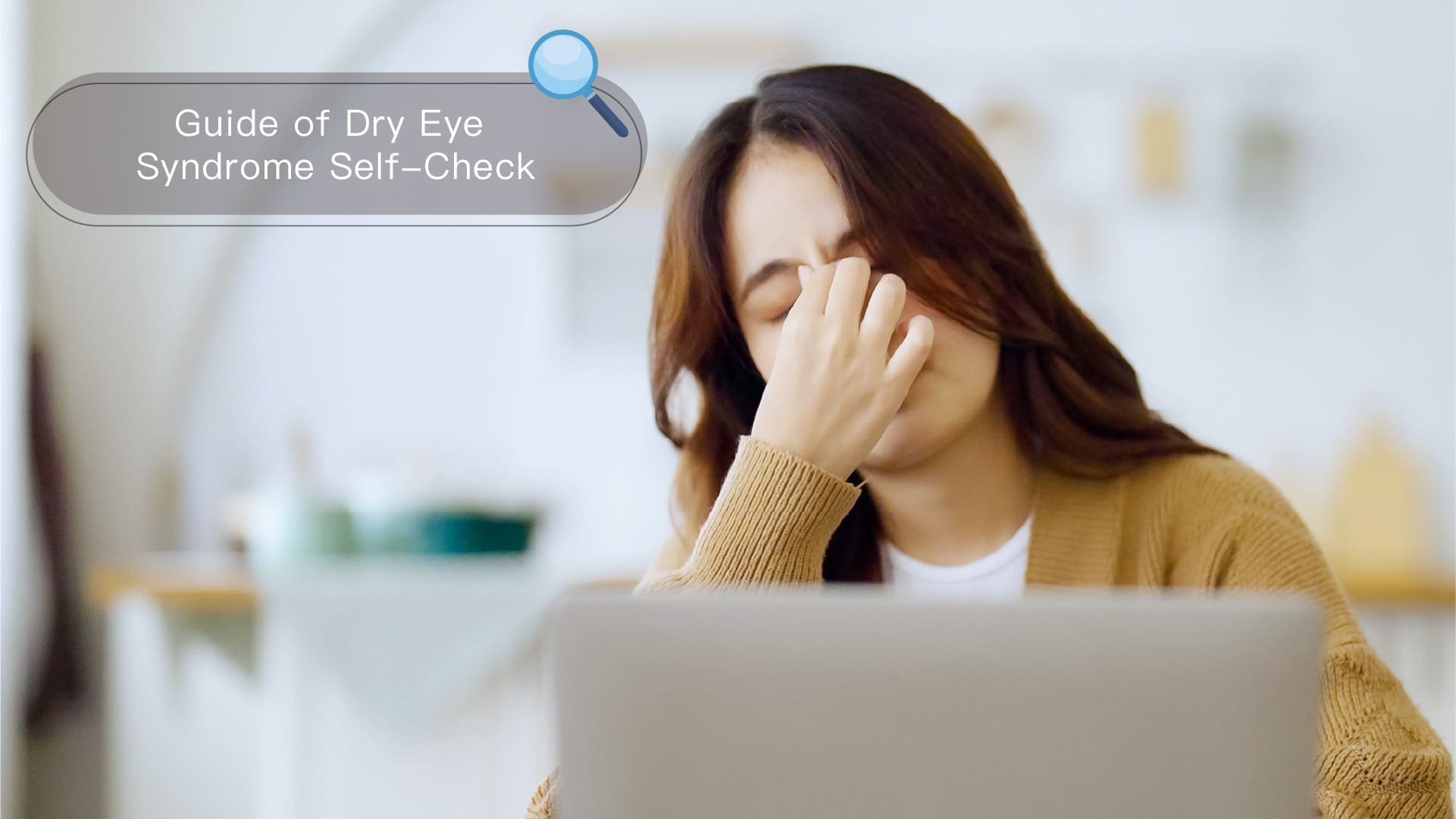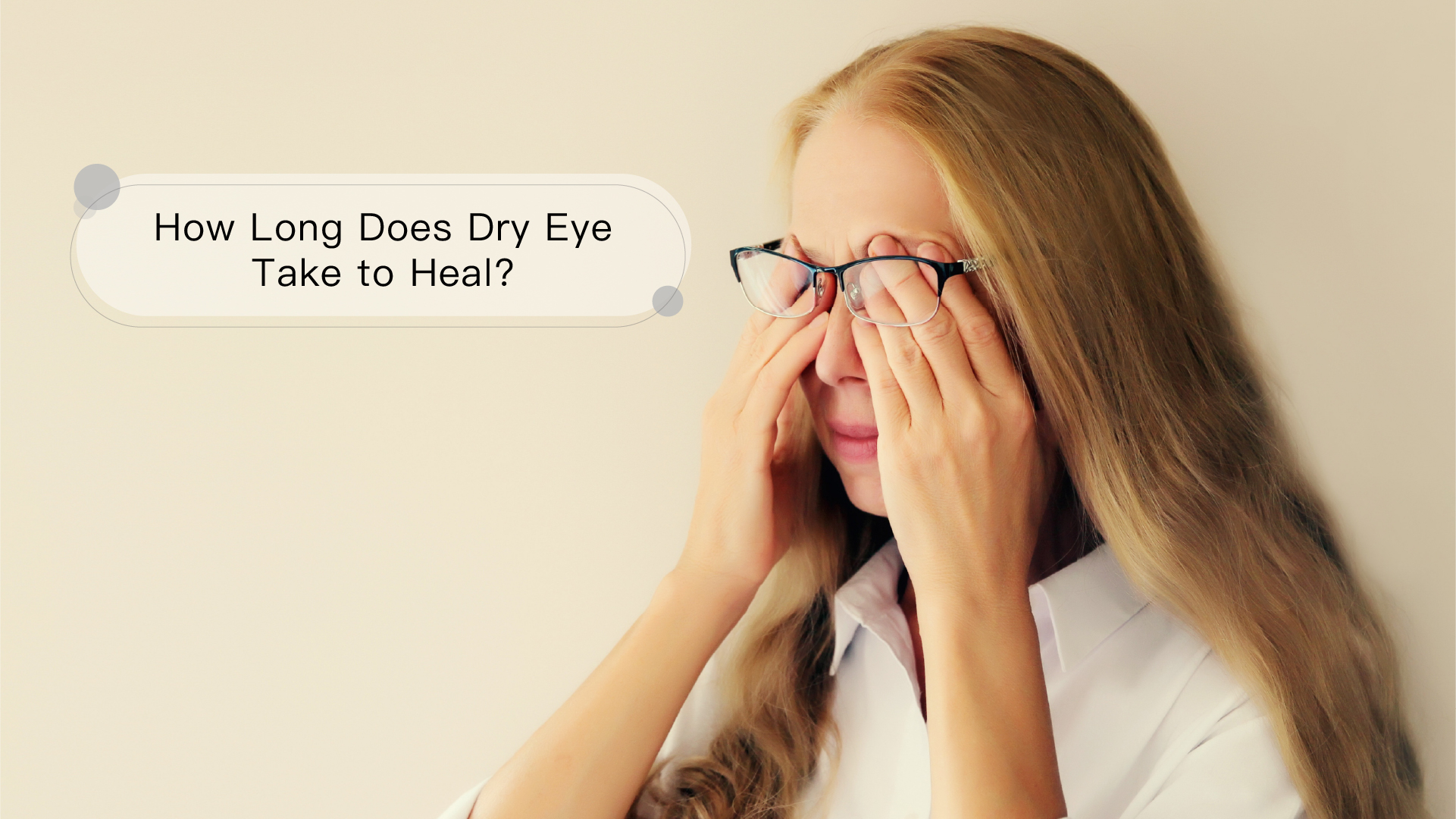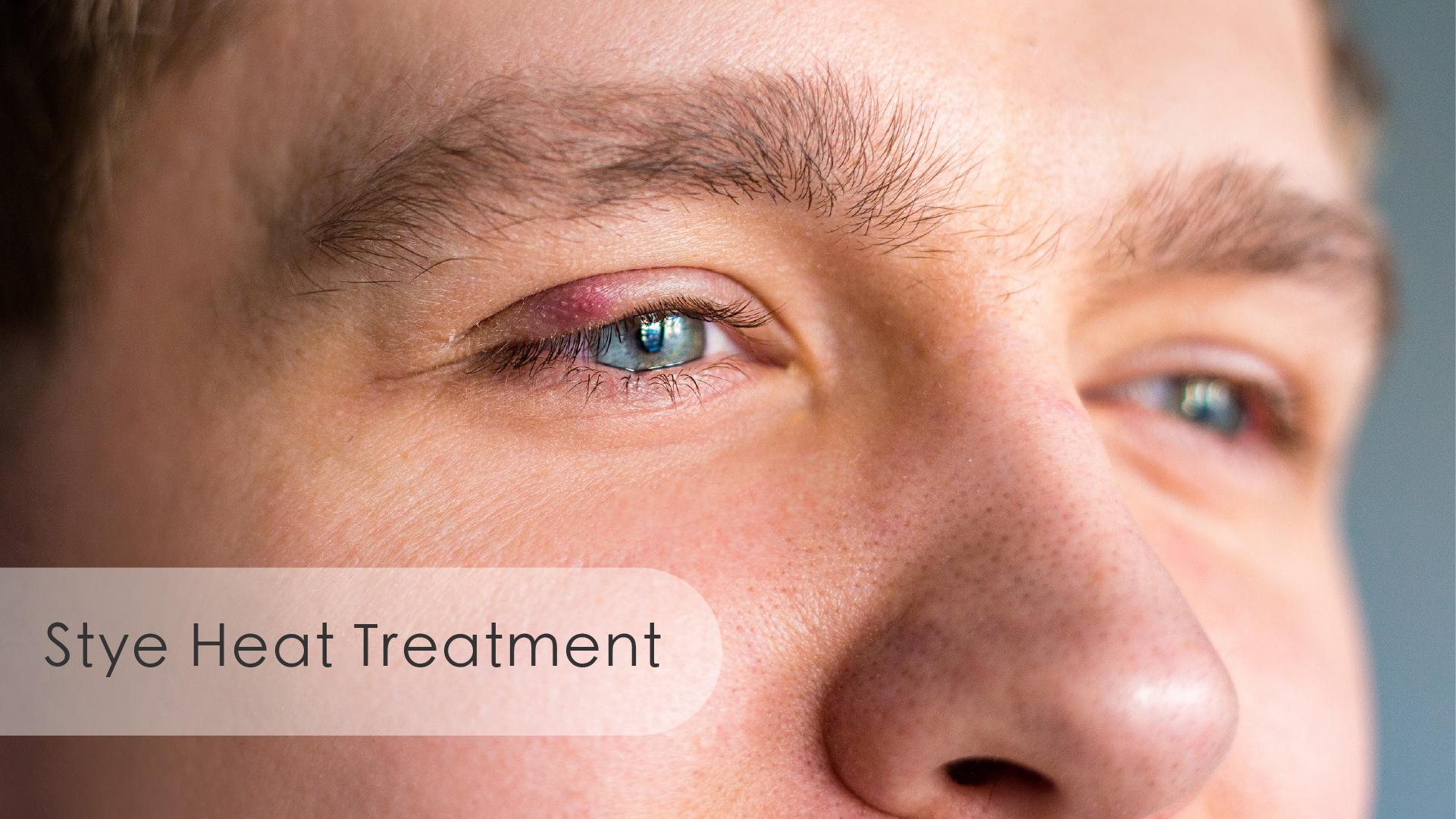What Are the Types of Dry Eye Syndrome?
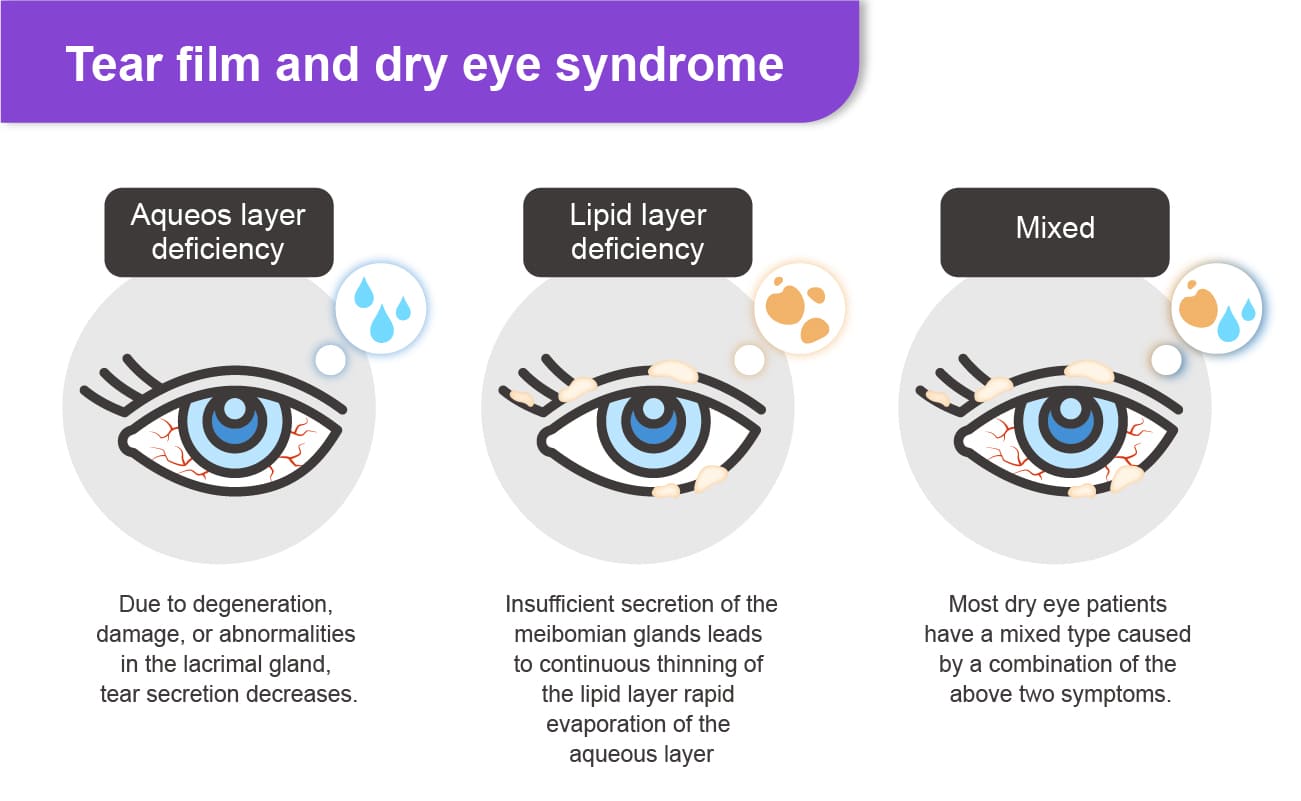
Dry eye is classified into three types: aqueous deficient, evaporative, and mixed. Each type has different causes and symptoms:
Aqueous Deficient Dry Eye
This occurs when the lacrimal glands produce insufficient tears, often due to age-related decline or damage to the glands (e.g., autoimmune diseases). Inadequate water in the tear film causes dryness.
Evaporative Dry Eye
This type occurs due to inadequate or poor-quality oil production from the meibomian glands. The oil layer helps reduce tear evaporation. When the glands malfunction, tears evaporate too quickly, leading to dryness.
Mixed Dry Eye
This is the most common type, in which patients suffer from reduced tear production (aqueous deficiency) and excessive evaporation (evaporative dry eye).
What test is used to check for dry eye?
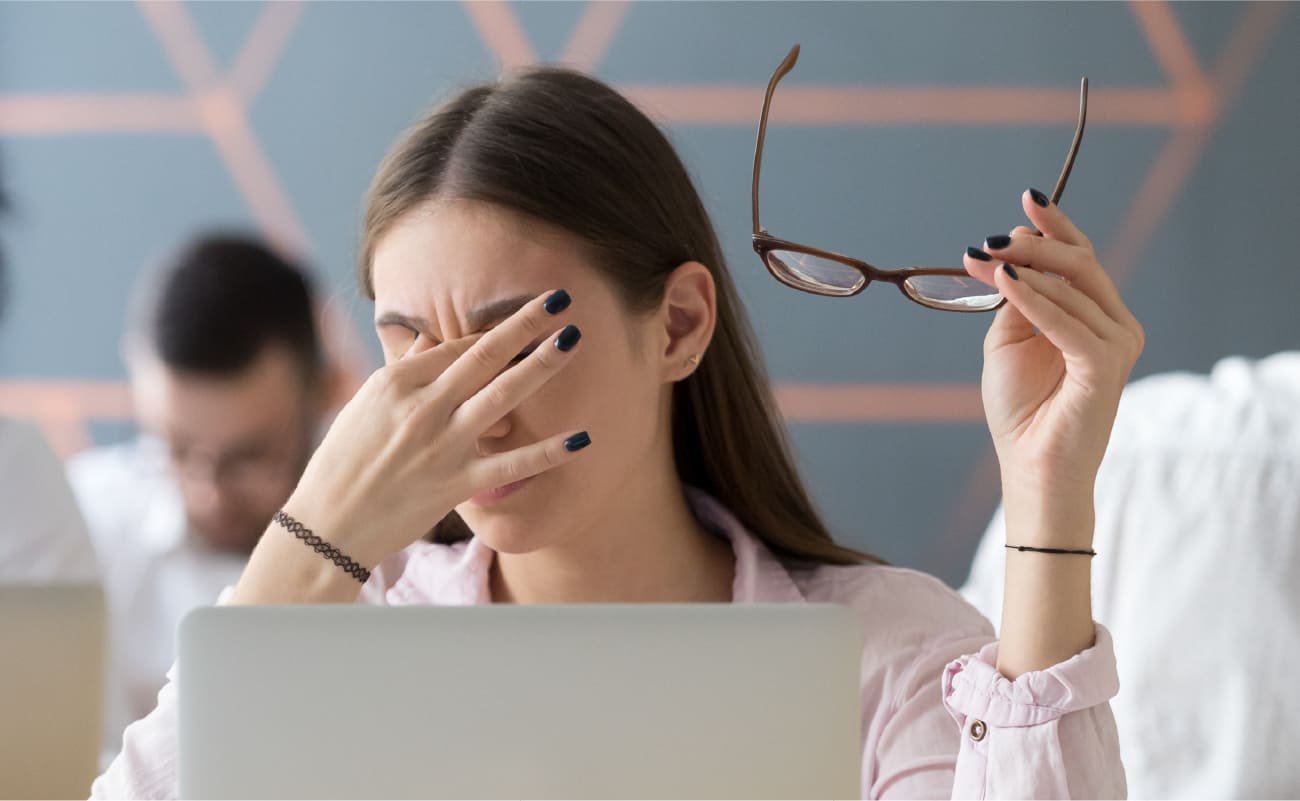
There are two main ways to self-check for dry eye syndrome:
Self-Check Symptoms
If you regularly experience any of the following, seek professional advice from an ophthalmologist:
- Persistent dryness or fatigue in the eyes.
- Tension or heaviness in the eyelids.
- Frequent itching or burning sensations.
- Blurred vision or a sensation of something in the eye.
- Sensitivity to light, wind, or smoke.
- Sticky or stringy discharge.
OSDI Test
The Ocular Surface Disease Index (OSDI) is an online test that takes about five minutes to complete. It asks 12 questions regarding your symptoms, including light sensitivity, foreign body sensation, and discomfort. Results range from 0 to 100, categorizing the condition as mild, moderate, severe, or severe dry eye.
The severity levels of dry eye syndrome, as categorized by the Dry Eye Workshop (DEWS) in 2007:
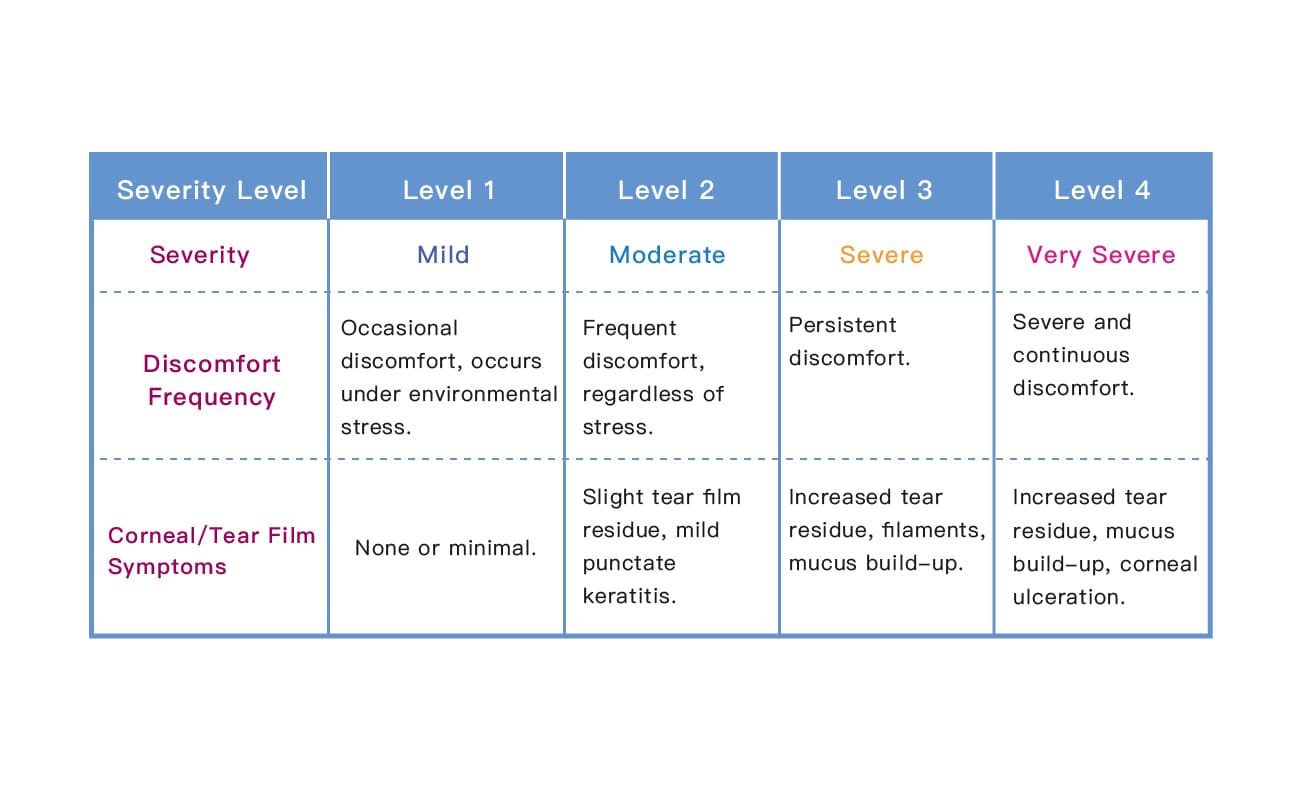
Why Is Dry Eye Syndrome Difficult to Cure?
Dry eye syndrome can be managed with appropriate treatment, but certain factors make it harder to heal:
- Mixed Dry Eye: Aqueous deficiency and evaporative issues can complicate symptoms, requiring multiple treatments.
- Unhealthy Habits: Excessive screen time, late nights, smoking, and drinking alcohol can worsen symptoms.
- Health Conditions: Diabetes or rheumatoid arthritis can affect natural tear production, making treatment more challenging.
How to Improve Dry Eye Syndrome?

If you suspect you have dry eye syndrome after self-checking, consult an ophthalmologist and consider the following remedies:
Blink More Often
People tend to blink less when using screens, leading to dry eyes. Make a conscious effort to blink 15-20 times per minute.
Adjust Lifestyle
- Reduce screen time and take breaks every 30 minutes.
- Avoid staying up late and smoking or drinking alcohol.
- Use a humidifier and avoid exposure to strong winds.
Balanced Nutrition
Foods rich in Omega-3 fatty acids (e.g., fish, flaxseeds) and Vitamin A (e.g., carrots, spinach) can improve eye health.
Supplements
Please look at supplements like fish oil, astaxanthin, lutein, and Vitamin A. Consult a doctor or pharmacist to ensure safety.
Eye Drops and Ointments
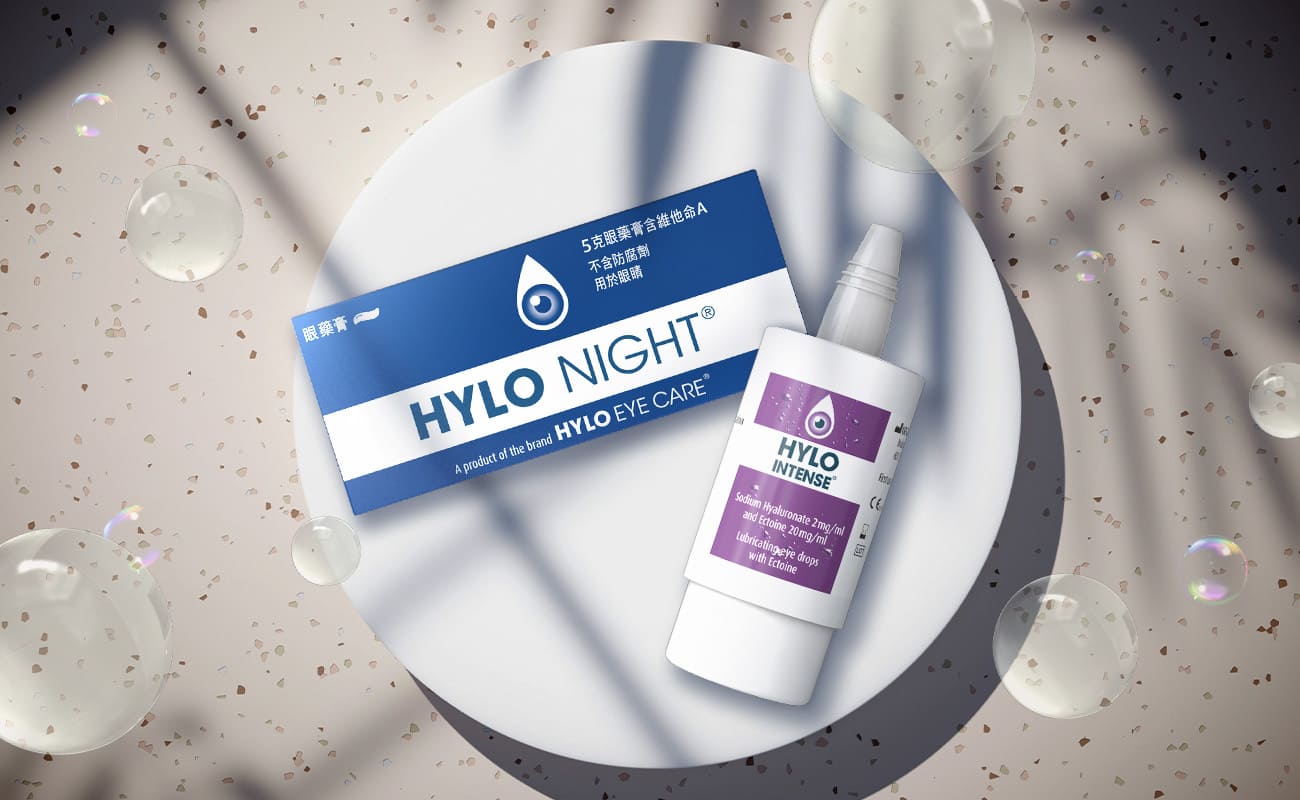
HYLO Intense and HYLO NIGHT® ointment are recommended for dry eye relief. Both are developed using advanced German technology, preservative-free, and safe for long-term use.
HYLO Intense contains patented hyaluronic acid and Ectoine, providing deep moisture and relief from severe dryness, fatigue, and burning sensations. HYLO NIGHT® ointment, rich in Vitamin A, is ideal for use at night to soothe eye discomfort.

